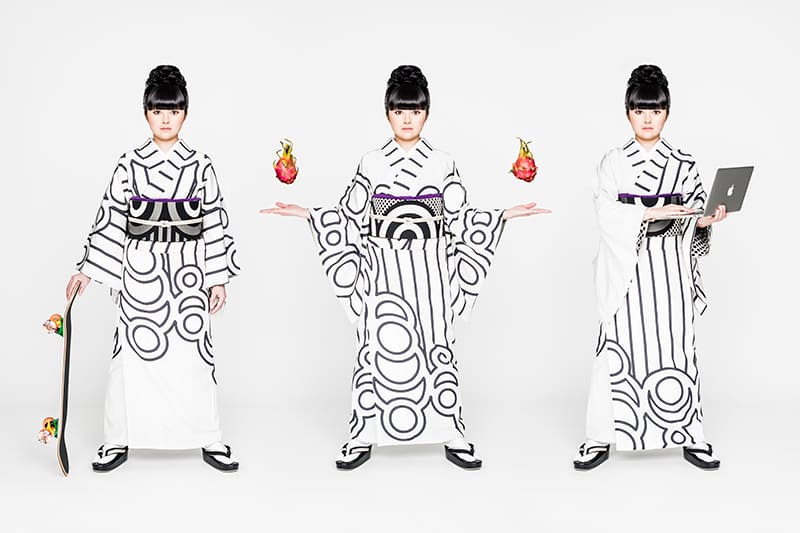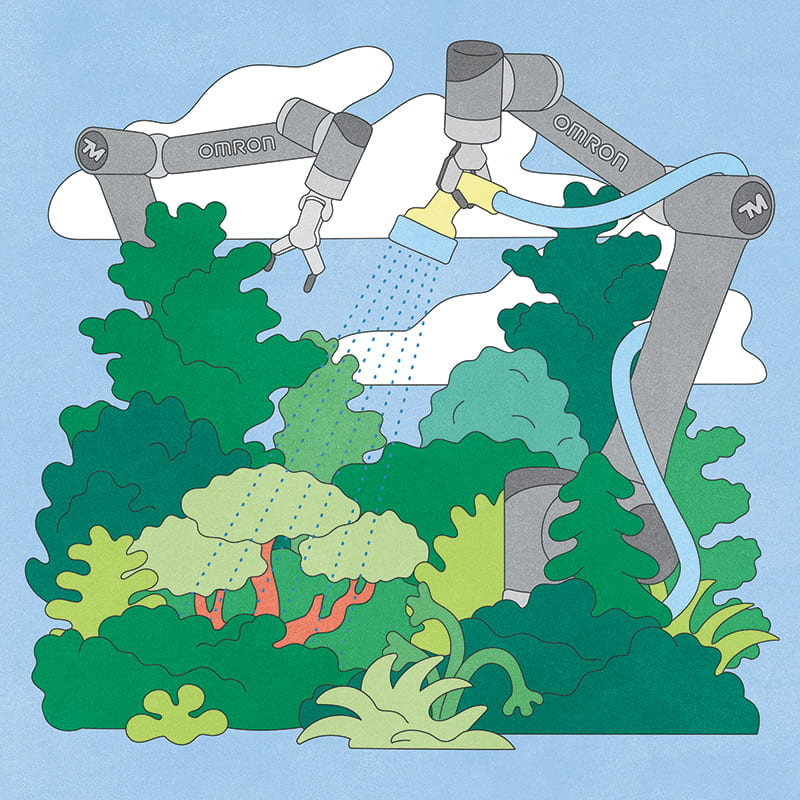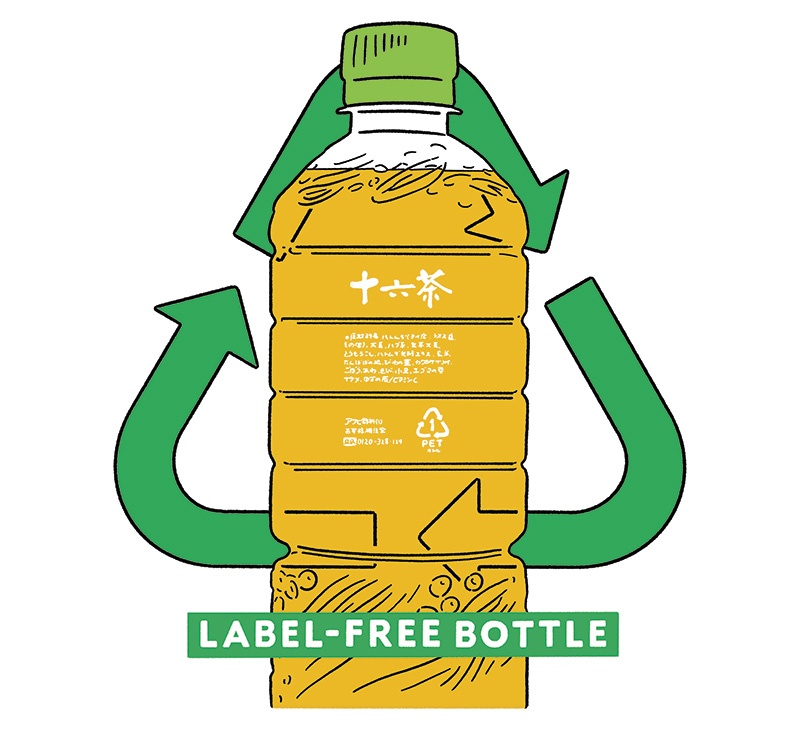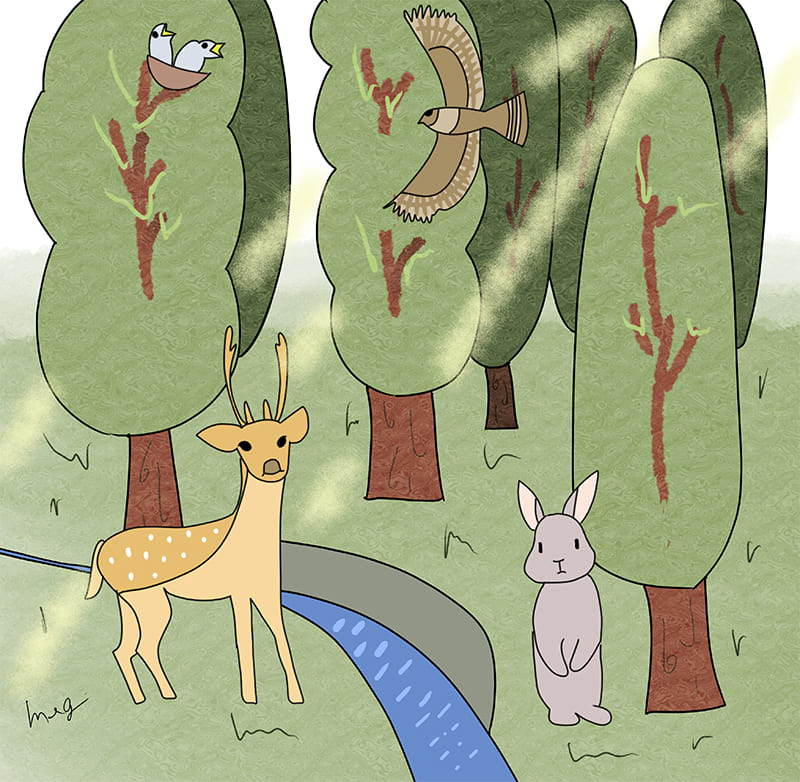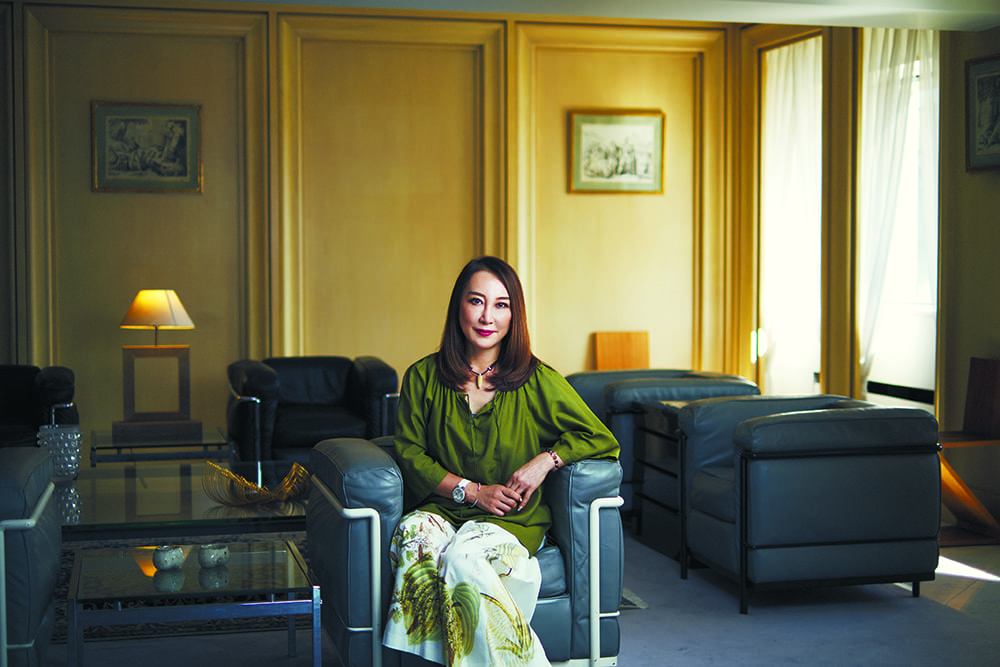August 30, 2021
Yusuke Takahashi: Fashion must raise the bar higher
KNIT MAKER
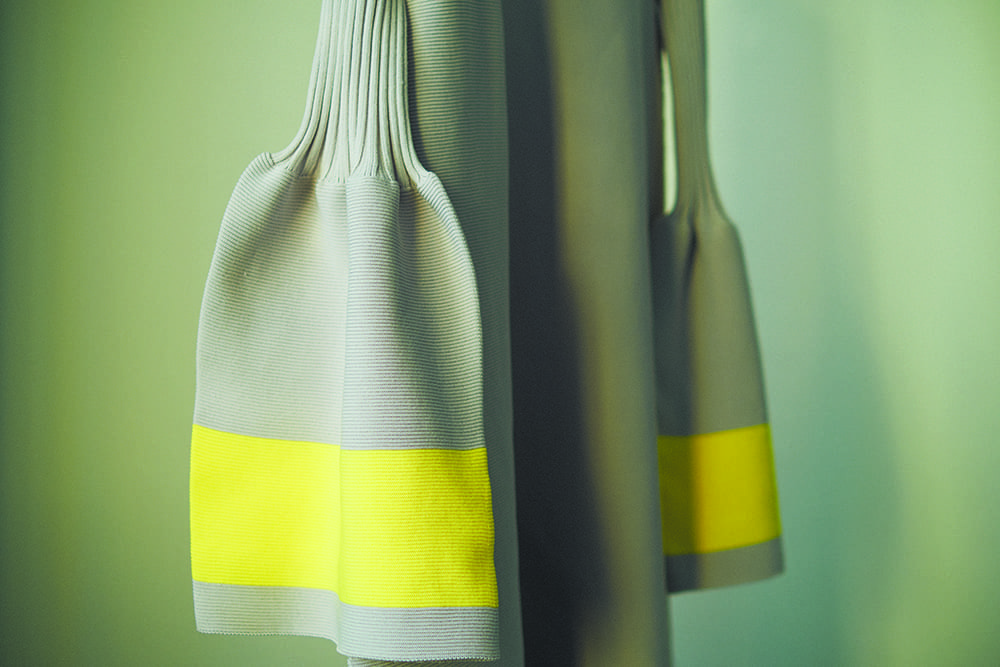
PHOTO: KOUTAROU WASHIZAKI
In late 2020, the Japanese government announced that the nation will become carbon-neutral by 2050. While all industries need to decarbonize, concrete actions are still at the trial-and-error stage and few companies have a clear-cut record of achievement as yet. In the fashion world, too, although a growing number of businesses are promoting their products with buzzwords like “organic” and “ecological,” the meanings of these terms remain nebulous and it is hard to grasp what actually makes an item “ecological.”
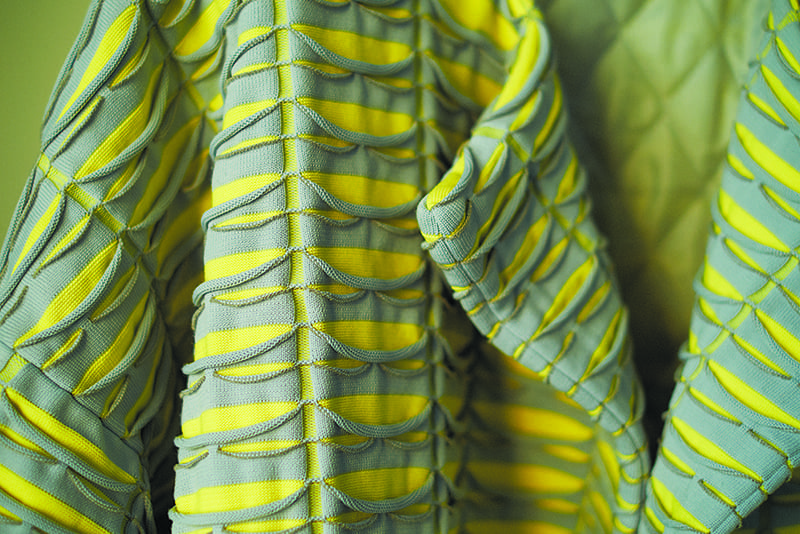
PHOTO: KOUTAROU WASHIZAKI
Amid this situation, the fashion brand CFCL, launched last year, is touting corporate traceability. We talked to designer Yusuke Takahashi.
“CFCL’s biggest strength is leveraging computer programming in the production of knitwear,” he said. “A key feature of computer-programmed knitting is that the production process generates hardly any waste, as the yarn can be made directly into clothing without the need for paper patterns or cutting fabric. The advantages gained from being able to turn yarn straight into garments mean we mainly use recycled polyester material.”
Takahashi has embarked on a series of endeavors without precedent among fashion brands, such as appointing a chief sustainability and strategy officer (CSO) to handle his company’s environmental strategy. To mark CFCL’s first anniversary, he applied for B Corporation certification, an international accreditation for businesses meeting the highest standards of verified social and environmental performance. But why has Takahashi gone to these lengths in his efforts to steer a course toward sustainability? “2020 was the year when environmental problems began to have a direct bearing on business,” he replied.
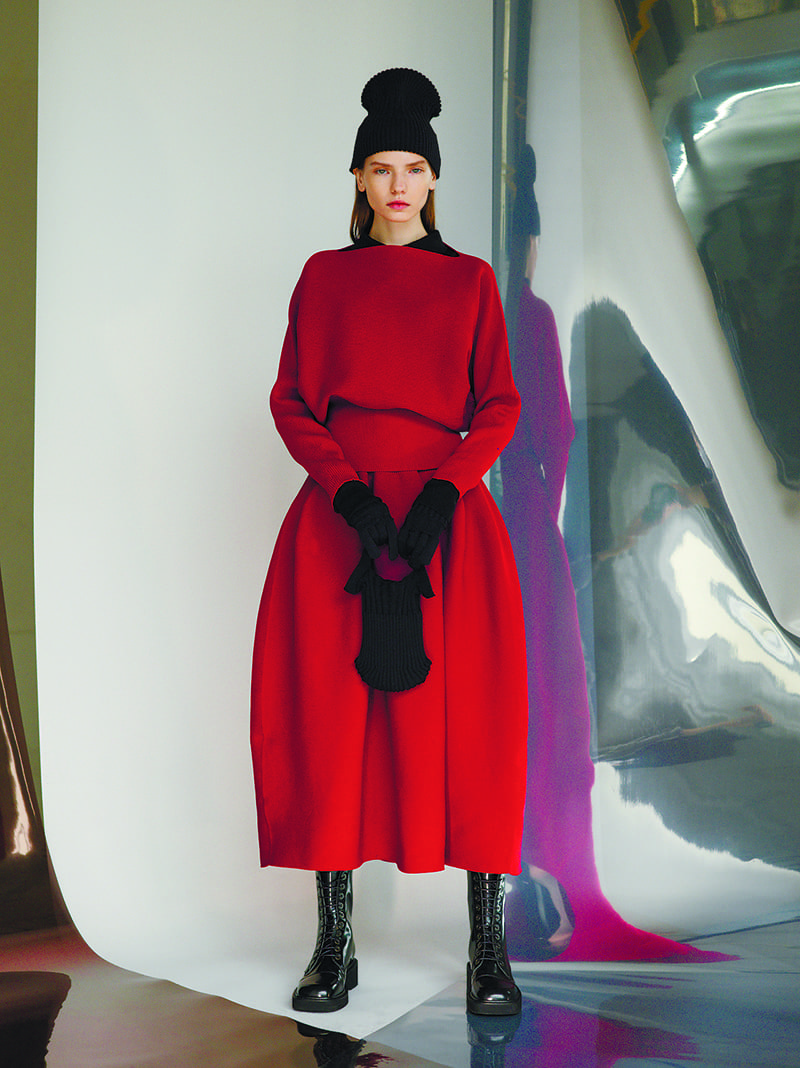
COURTESY: CFCL
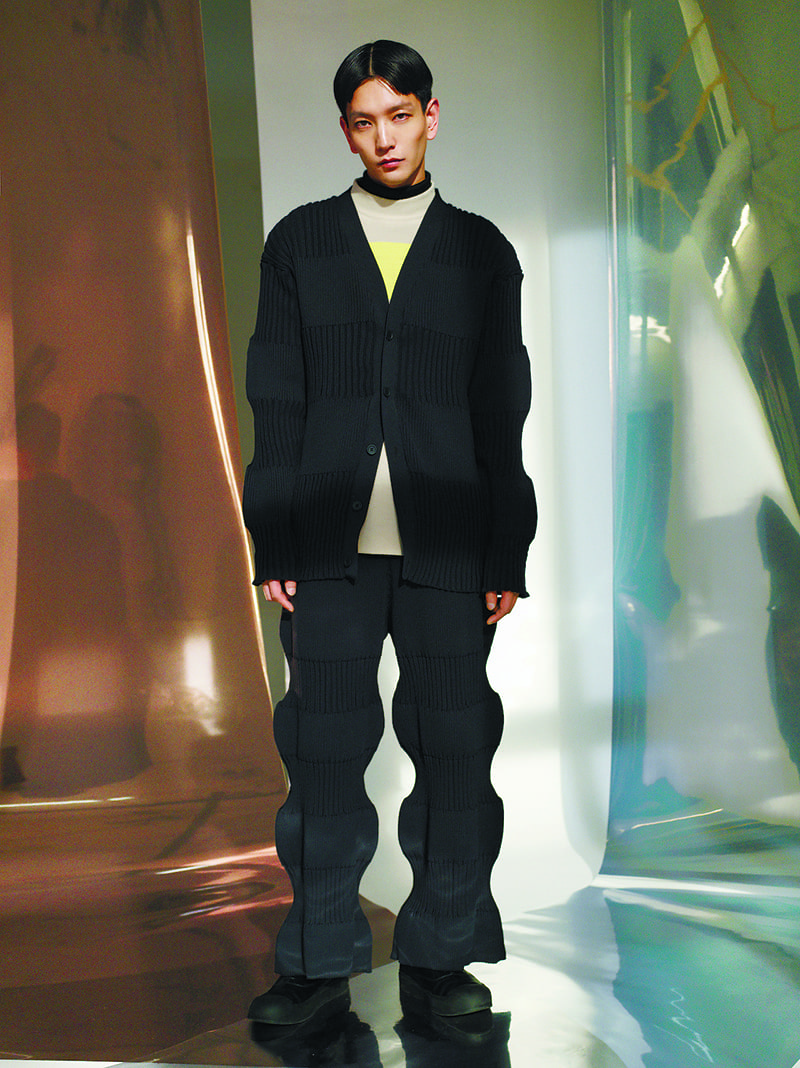
COURTESY: CFCL
“Following my daughter’s birth in 2019, the question of what we as parents could do for our children’s future began to trouble me. With awareness of sustainability growing worldwide, I realized starting up a brand gave me the perfect opportunity to build environmentally conscious attitudes tailored to our times into the business from the outset. For example, we’ve published figures for the volume of greenhouse gas emissions per dress ever since our first collection’s launch. In the life cycle assessment (LCA), we calculate the global environmental impact of each product throughout its life cycle, from procuring the raw materials right through to disposal of the item. The technique we use is based on the ISO14040 international standard. I think companies need to start presenting solid figures, rather than using vague terms like ‘environmentally friendly.’”
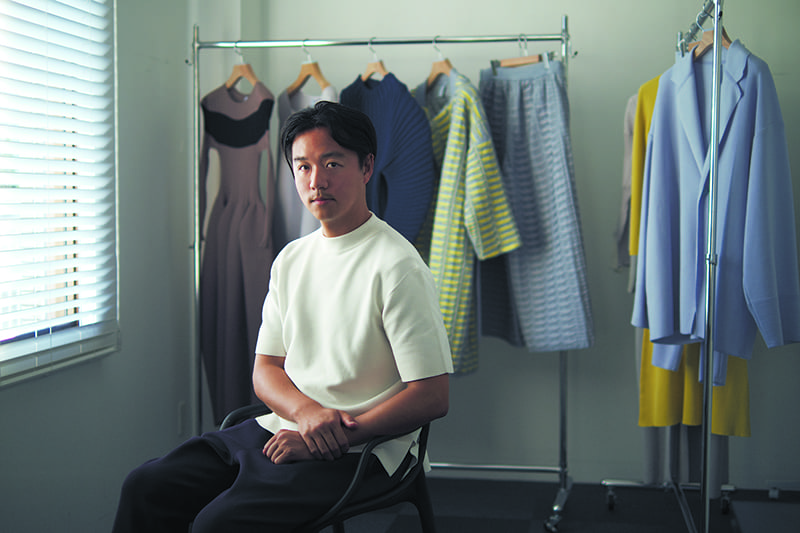
PHOTO: KOUTAROU WASHIZAKI
Sustainability will not be achieved through the efforts of one company alone. Takahashi points out that the cooperation of related businesses will be crucial in further curbing carbon emissions.
“Right now, we’re encouraging CFCL’s business partners to be more considerate of the environment, conducting sustainability surveys among our suppliers and recommending that they switch to renewable energy to power their factories,” he said. “Fashion has traditionally been described as a medium of self-expression toward society. This is the perfect time for fashion designers to become influencers changing social attitudes. As fashion is such a huge market, transforming awareness among the individuals who buy clothes will change society as a whole. Rather than pursuing higher sales or business expansion, I want my company to be a device for improving society by showing people a way of life for the future.”
『地球に優しい』といった曖昧な言葉はいらない。
2020年に誕生したファッションブランド〈CFCL〉は、企業のトレーサビリティを掲げている。デザイナーの高橋悠介は語る。「CFCLの強みはコンピュータ・プログラミングを駆使したニット製造です。裁断やパターンを行わず、糸から直接服のフォルムを作り出せるので、生産過程でゴミをほとんど出しません。また、再生ポリエステル素材を中心に使用しています」。
そう語る高橋は、環境配慮への戦略を練る専門職を自社内に置き、起業1年目にして「B Corp」(環境や社会に配慮した事業を行う企業に与えられる国際水準の認証制度)を申請した。
「ファーストコレクション発表時からドレス1着あたりの温室効果ガス排出量を公表しています。製品の原料調達から廃棄処分まで、地球環境にどの程度影響を与えているかを国際規格ISO14040に基づいて算出する手法を基準としています。『地球に優しい』といった曖昧な言葉ではなく、具体的な数値を示すことがこれからの企業にとって必要な姿勢だと考えています」。
Return to Sustainable Japan Magazine Vol. 3 article list page

